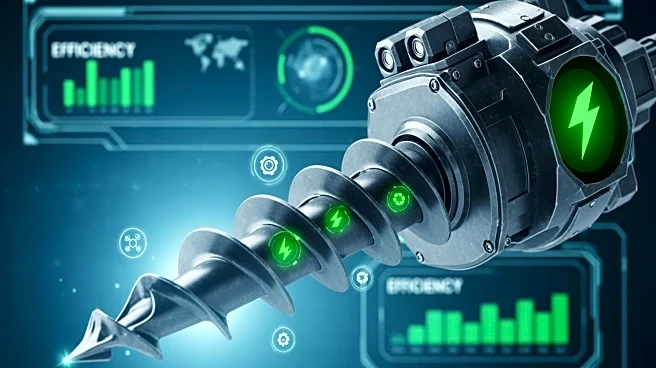What's Happening?
MOVUS, now part of Infinite Uptime Inc, is set to launch its PlantOS platform at the International Mining and Resources Conference (IMARC) 2025 in Sydney. PlantOS is a prescriptive AI platform designed
to improve reliability, efficiency, and sustainability in metals and mining operations. The platform empowers companies to transition from predictive to prescriptive maintenance, where AI not only predicts equipment failures but also prescribes precise actions to enhance operational outcomes. The Ultra vSense piezoelectric sensor, integral to PlantOS, has been nominated for the IMARC 2025 Mining Beacon Breakthrough Innovation Award, recognizing its transformative impact on the resources sector.
Why It's Important?
The introduction of PlantOS represents a significant advancement in the mining industry, which faces increasing pressure to boost productivity, control costs, and meet sustainability targets. By enabling prescriptive maintenance, PlantOS helps operators minimize unplanned downtime, extend equipment life, and optimize energy use, thereby enhancing overall operational efficiency. This development is crucial as the global mining sector seeks innovative solutions to address environmental and economic challenges. Companies adopting such technologies stand to gain competitive advantages through improved asset management and reduced operational risks.
What's Next?
At IMARC 2025, MOVUS will demonstrate how PlantOS can be integrated with critical mining equipment to provide real-time insights into equipment health. Malcolm Schulstad, COO of MOVUS, will participate in a session on collaboration, technology, and innovation, focusing on how these elements accelerate decarbonization and productivity in mining operations. The industry is likely to see increased adoption of prescriptive AI technologies as companies strive to modernize their operations and meet sustainability goals. Stakeholders may respond by investing in similar technologies to remain competitive.
Beyond the Headlines
The shift towards prescriptive maintenance in mining could lead to broader implications for industrial sectors, emphasizing the role of AI in operational decision-making. Ethical considerations may arise regarding the reliance on AI for critical maintenance decisions, necessitating robust validation and oversight mechanisms. Additionally, the integration of advanced sensors and AI platforms could drive long-term shifts in workforce skills, requiring new training programs to equip employees with the necessary expertise to manage AI-driven systems.









